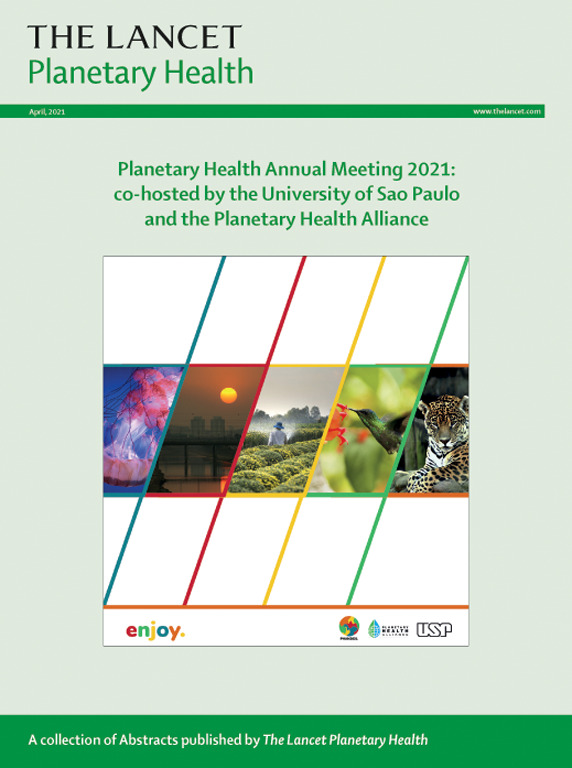Diminishing marginal returns and sufficiency in health-care resource use: an exploratory analysis of outcomes, expenditure, and emissions
IF 24.1
1区 医学
Q1 ENVIRONMENTAL SCIENCES
引用次数: 0
Abstract
Background
Increasing health expenditure in low-income countries is associated with rapid gains in health status. Less attention has been paid to the possibility of diminishing marginal returns to health expenditure at high levels of spending, or to the relationship between health-care greenhouse gas emissions and outcomes. Our study aimed to investigate the existence, scale, and implications of diminishing marginal returns to health-care expenditure and emissions.
Methods
Segmented (piecewise) regression analysis was used to explore the relationship between two measures of health outcome from the Global Burden of Disease project (mortality amenable to health care [MAH] and health-adjusted life expectancy [HALE]), four aggregates of health expenditure per capita from the WHO Global Health Expenditure Database, and health-care sector greenhouse gas emissions per capita derived from a 2020 study by Lenzen and colleagues. Turning point knots—points at which the elasticity or velocity of increasing returns to expenditure and emissions changed substantially—were estimated and countries in the vicinity of these knots identified.
Findings
Rapidly increasing returns (improvements in population health as measured by MAH and HALE) to health expenditure were estimated in low-income and lower-middle-income countries; at levels of spending above approximately US$500 per capita, these returns start to slow. At levels of spending above those seen in high-income countries such as Italy (approximately US$3400), there is little or no evidence of further health returns to additional spending or to increasing health-care greenhouse gas emissions.
Interpretation
Dramatic improvements in population health outcomes could be achieved by additional investment in health expenditure in low-income countries. Conversely, continuing growth in health expenditure in high-income countries will, by itself, be unlikely to yield rapid improvements in health outcomes. Our findings inform the emerging debate on the importance of sufficiency within planetary boundaries—low-income countries need rapid growth in health expenditure, whereas high-income countries could potentially achieve better health outcomes at substantially lower levels of resource use.
Funding
None.
医疗资源使用中的边际收益递减和充足性:对结果、支出和排放的探索性分析。
背景:低收入国家医疗支出的增加与健康状况的迅速改善有关。人们较少关注在高支出水平下医疗支出边际收益递减的可能性,也较少关注医疗保健温室气体排放与结果之间的关系。我们的研究旨在调查医疗支出和排放边际收益递减的存在、规模和影响:方法:采用分段(片断)回归分析来探讨全球疾病负担项目中的两种健康结果测量指标(适合医疗保健的死亡率[MAH]和健康调整后预期寿命[HALE])、世界卫生组织全球卫生支出数据库中的四种人均卫生支出总量以及 Lenzen 及其同事的 2020 年研究中得出的医疗保健部门人均温室气体排放量之间的关系。我们估算了转折点--支出和排放的回报弹性或增加速度发生重大变化的点,并确定了这些转折点附近的国家:据估计,在低收入和中低收入国家,卫生支出的回报(以 MAH 和 HALE 衡量的人口健康改善)迅速增加;当人均支出水平超过约 500 美元时,这些回报开始减缓。当支出水平超过意大利等高收入国家的水平(约 3400 美元)时,几乎没有证据表明增加支出或增加医疗保健温室气体排放会带来进一步的健康回报:在低收入国家,通过增加医疗支出投资,可以显著改善人口的健康状况。相反,高收入国家医疗支出的持续增长本身不太可能迅速改善健康结果。我们的研究结果为正在出现的关于地球范围内充足性重要性的辩论提供了信息--低收入国家需要快速增长医疗支出,而高收入国家则有可能在大幅降低资源使用水平的情况下实现更好的健康结果:无。
本文章由计算机程序翻译,如有差异,请以英文原文为准。
求助全文
约1分钟内获得全文
求助全文
来源期刊

Lancet Planetary Health
Multiple-
CiteScore
28.40
自引率
2.30%
发文量
272
审稿时长
8 weeks
期刊介绍:
The Lancet Planetary Health is a gold Open Access journal dedicated to investigating and addressing the multifaceted determinants of healthy human civilizations and their impact on natural systems. Positioned as a key player in sustainable development, the journal covers a broad, interdisciplinary scope, encompassing areas such as poverty, nutrition, gender equity, water and sanitation, energy, economic growth, industrialization, inequality, urbanization, human consumption and production, climate change, ocean health, land use, peace, and justice.
With a commitment to publishing high-quality research, comment, and correspondence, it aims to be the leading journal for sustainable development in the face of unprecedented dangers and threats.
 求助内容:
求助内容: 应助结果提醒方式:
应助结果提醒方式:


